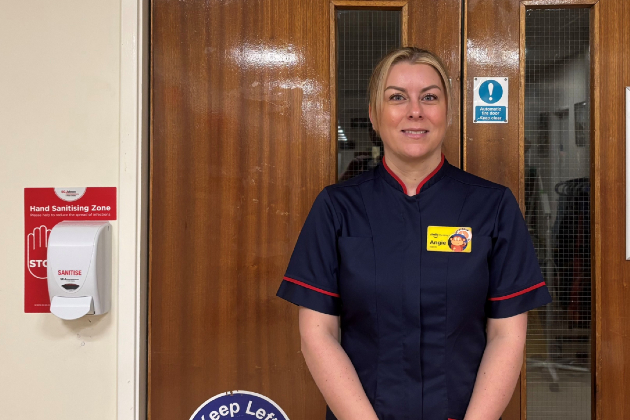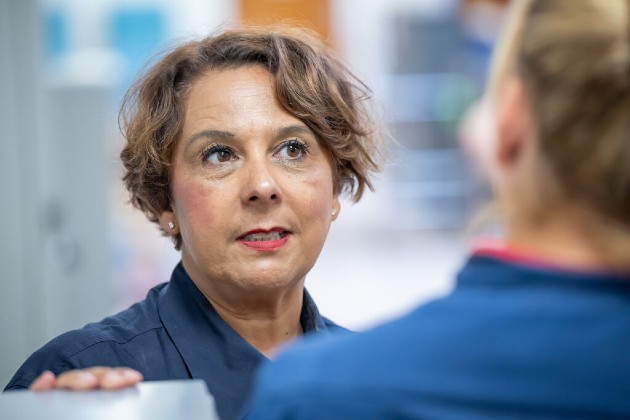As a nursing student, especially when you’re just starting out, confidence can be a challenge. So when I realised that my name was embroidered on my uniform, it made me feel I really was part of the health care team and recognised as a professional.
It starts us off on the right footing.
Northumbria University has paid for all first-year nursing and health care students to have our names embroidered on our tunics, so when we’re out on placements everyone can see at a glance who we are. It wasn’t something I’d expected, so it was a lovely surprise when I saw it for the first time.
Talking to fellow students, we think it’s a great initiative that supports students and patients, improving care.
The reaction from others has been excellent too. On placements, staff have commented on how helpful it is: sometimes it can be hard to remember everyone’s names, so having it there helps with communication and bonding.
In emergency situations, where everyone is reacting as quickly as possible, being able to spot someone’s name easily means you can give them clear instructions about what to do, improving patient safety.
Having it there helps with communication and bonding
Patients have also welcomed it. Of course, you introduce yourself when you meet a patient for the first time, but if they’re feeling a bit anxious, they’re unlikely to remember who you are.
This is a good prompt and it’s also reassuring for them to be able to see your name more easily than if it’s on a small badge. It helps put them at ease, especially if they’re worried, helping you create those all-important therapeutic relationships that are the foundation of good patient care.
Students in other years are still using name badges, but I think this has some clear advantages. Infection control is such an important aspect of care and badges must be sterilised regularly. Being embroidered onto your uniform saves all of that time and money.
Name badges with magnets can also interfere with electronic devices. They can wear out and begin to look tatty. Sometimes placement providers can forget to give you a badge, or you can lose them, creating all kinds of difficulties.
I think this has been so successful that the university plans to roll it out to all other health care students in the future.
Having a tunic with my name embroidered on it is personal to me – it’s something I know is mine. It makes me feel proud.
What inspired Northumbria University’s initiative?
The initiative was inspired by the #hellomynameis campaign, which is aimed at providing person-centred compassionate care, says Northumbria University.
Dr Kate Granger, who was terminally ill, became frustrated that many staff looking after her did not introduce themselves before delivering her care. Working with her husband Chris Pointon, in 2013 they created the campaign, which uses a smiling face logo to remind health care staff about the importance of introducing themselves to their patients.
After running a pilot project to see if having names embroidered on uniforms could help improve the experiences of students on placement, researchers at Northumbria have discovered clear benefits.
Senior Lecturer in Nursing, Dr Julie Derbyshire, says: “We found that when students had their names embroidered onto their uniforms it helped them to make personal connections and build relationships with vulnerable people and co-workers.
“We believe this simple yet powerful initiative can make a meaningful difference to compassionate, collaborative and safe care, and can empower and enable staff and patients.”








